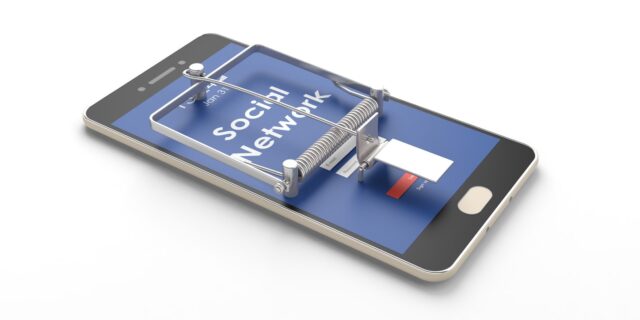
Social media has had a huge impact on the online gambling industry. It has allowed more people to access and engage with online gambling platforms, as well as providing a platform for marketing and advertising. Social media also provides an opportunity for players to interact with each other, share tips and strategies, and discuss their experiences.
However, there are some potential risks associated with social media use in online gambling. These include the potential for problem gambling due to increased accessibility, as well as the risk of fraud or scams due to a lack of regulation in some areas.
Users must be aware of these risks when engaging in online gambling activities through social media platforms. There is an increased risk of problem gambling on social media, as social media provides more access to gambling.
Trusted online gaming operators like OKBET encourage people to play responsibly, and this piece will detail how social media promotes poor online gambling behavior.
Social Media’s Biggest Impacts on Gambling Behavior
The nature of how many people use social media as a form of entertainment is also likely to lead to an increase in problem gambling. A study found that on average, gamblers spend an hour a day watching sports betting activities on social media platforms such as YouTube and through their smartphones.
It also concluded that the majority of participants reported they did not feel they had any control over their consumption of gambling-related content, which could be seen to hurt those at risk of developing problematic levels of gambling.

Social media has also been found to provide gamblers with increased access to new types of gambling opportunities and methods of play, which could lead to an increase in risky or addictive behaviors. This is because many online gambling services require a minimum deposit before they can be used.
These activities may also be more accessible for those with social media accounts because they can then follow other people who are playing them to keep up with the latest trends.
In addition, the nature of how gamblers use social media platforms could lead them towards developing a problem gambling habit as it provides them with a sense of belonging and community that allows for increased motivation to gamble, as well as providing endless sources of entertainment that allow for an escape from the real world.
As of 2018, there are over 3 million active gamblers on social media platforms such as Facebook, Instagram, and Twitter.
How Social Media Introduces Young People to Gambling
A study conducted by the University of Auckland in July 2017 looked at the effect that social media has on gambling addiction among young people. This study found that despite some of these sites not being specifically designed for gambling purposes, their appeal to young people’s attention spans makes them more prone to developing a gambling problem.
A survey conducted about this study also found that 75% of respondents who gambled online met their friends or online acquaintances specifically through social media.
Alcoholism and Irresponsible Sports Betting

In a study of gamblers who were interviewed before and after the introduction of 24-hour wagering in Australia, 78% reported that their level of alcohol consumption was higher after the introduction of online sports betting.
This is a potential result due to increased accessibility and ease of use, as well as the nature of how many people use social media as a form of entertainment. Other forms increase access include phone apps, game consoles, or computers which are also known to increase problem gambling in some cases.
Accessibility Afforded by Social Media
The accessibility and affordability of gambling sites have also been shown to contribute to the development of a problem gambling habit. In a study conducted by the University of Auckland’s Gambling Research Unit in June 2017, it was found that 62% of respondents who gambled online did so through websites they found on Google searches.
The study found that 66% of respondents who used these sites gambled weekly, while 9% averaged 8 or more bets per day. The act of playing games online, especially to make money from it, has also been linked with a higher risk of developing a gambling disorder.
Another study conducted by the University of Bristol in June 2017 found that participants who played games online for money had a higher frequency of gambling, were more impulsive, and were more likely to meet other gamers online.
While no conclusive research has been done on social media addiction and gambling, anecdotal evidence supports the existence of this link. “It’s not just poker players or war-gamers left numb from screens”, wrote one blogger produced by the documentary The Great Hack about cybercrime in the UK.
Controlling Social Media’s Impact on Problem Gambling

There are multiple ways individuals with problem gambling tendencies can control their habits by effectively controlling their social media.
Changing the notification settings of the social media being used is an effective way of controlling problematic gambling habits. The less the person sees notifications about their social media accounts, the less likely they will be tempted to fall into their problematic gambling habits.
Another great solution to limiting social media use is limiting phone access. Controlling the frequency at which the individual’s phone is used can prevent such things from happening in the future.
Finding a productive hobby can also become an effective tool for managing one’s social media use. Since you’re usually using social media due to boredom, finding an alternative activity to do would be a better use of your time.
Curb Problem Gambling Today
These are only some of the impacts that can be caused by social media on problem gamblers. Make sure to be careful with social media use if you’re trying to control your gambling habits.
However, if you can control your urges, you should play at trusted online casinos like OKBET. These legitimate online betting platforms provide a space where you can gamble responsibly and safely.












